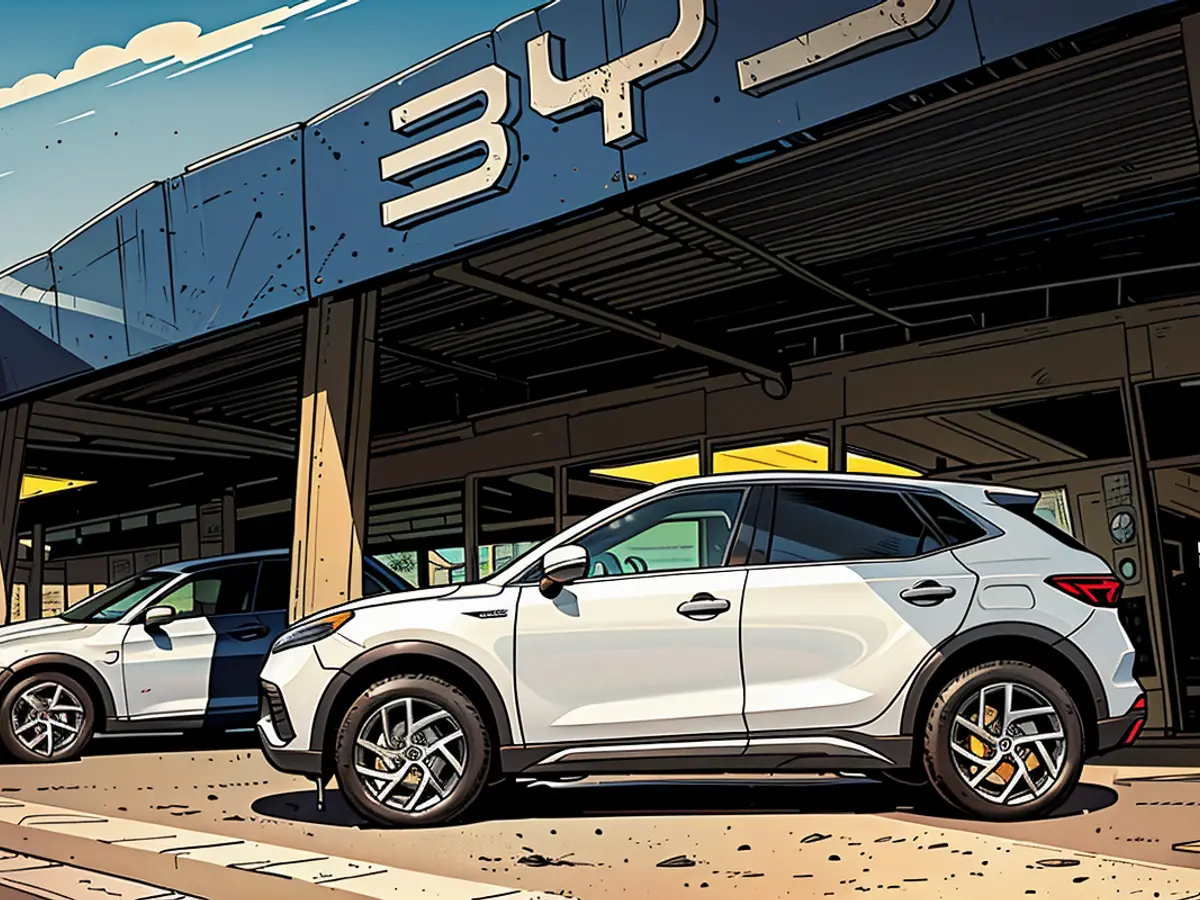EU electric vehicles may face price hikes due to potential Chinese tariffs.
China's backing of its auto manufacturers has sparked discussions in the EU over the possibility of imposing tariffs on imported electric cars. While these proposed tariffs would be much lower than in the US, concerns linger about the potential economic implications for consumers.
In Brussels, preparations for an increase in tariffs on Chinese electric vehicles are underway this week. The EU Commission must navigate a challenging balance between shielding its domestic automotive sector from competition and avoiding a trade war with China.
The EU cites Beijing's alleged overpayment of subsidies to its own carmakers as the reason for the competitive advantage they enjoy. EU Commission President Ursula von der Leyen launched an investigation into the issue in September. She has until July 4th to make a decision regarding tariffs, with an initial expectation for a decision shortly after the EU parliamentary election.
What level could these tariffs reach?
It is anticipated that the Commission will initially raise tariffs from the existing ten percent to 15 to 30 percent. This response from the EU is set to be significantly less drastic than the US's, where President Biden announced in mid-May a raise in electric car tariff rates from 25 to 100 percent.
Analysts anticipate that the Commission will impose specific tariff rates for the three investigated Chinese manufacturers byd, saic, and geely, as well as a general tariff rate for all other manufacturers who import from China. However, manufacturers such as mercedes, which are German-made but produced in China, would also face these tariffs.
What would the consequences of the tariffs be?
Manufacturers like byd wouldn't necessarily leave the European market, as Chinese electric cars are sold in Europe at twice their domestic prices according to a study by China experts at the rhodium group. "Even with a tariff rate of 30 percent, many Chinese electric models would still generate a high profit margin in the EU," the study suggests.
On the other hand, manufacturers like BMW and tesla would be negatively affected, since they would have to export their China-made cars without Chinese state aid and without subsidies, potentially disrupting their current business model. Rising prices for electric cars are also predicted by the researchers.
How do experts, politicians, and the industry react?
The Association of the Automotive Industry (VDA) cautions against escalating the trade conflict, which would particularly harm German manufacturers. Auto expert Ferdinand Dudenhöfer estimates that Chinese-made electric cars - including vw and bmw models - could capture a market share of 25 percent. High tariffs could make these models more evident to consumers.
German Chancellor Olaf Scholz has spoken out against tariffs on several occasions. Sweden has also voiced its opposition to tariffs. France, with its carmakers less represented in China, is promoting a sterner stance against Beijing. To overturn tariffs imposed by the Commission, a majority of at least 15 member states would be needed, representing at least 65 percent of the EU population.
Elvire Fabry, a trade policy expert at the Brussels Jacques Delors Institute, urges against the politicization of this issue: "It should remain an economic matter, not a political one." The goal is not to isolate the European market but to create "a breathing space" for European manufacturers.
How has China responded?
The Chinese Chamber of Commerce in Brussels accuses the Commission of being "politically driven" in its investigation of carmakers. Although a "tit-for-tat" response would not be ideal for the economy, China might be "forced to implement a series of retaliatory measures."
Jacob Gunter, an economist at the Berlin Mercator Institute for China Studies, expects a "fairly sharp reaction" from China. Import tariffs would be viewed as an "attack on one of the central industries in which China has caught up technologically and even taken the lead." According to Gunter, there hasn't been "anything of this magnitude" in economic relations with Beijing thus far.
Read also:
The USA has also implemented punitive tariffs on imported electric cars from China, raising rates from 25% to 100%. This action by the USA has prompted discussions within the EU about potential repercussions if similar tariffs are imposed on Chinese electric vehicles.
Some EU analysts predict that Chinese electric car manufacturers like byd, saic, and geely may still manage to maintain profitable sales in the EU, even with proposed tariffs, due to the high prices at which these vehicles are already sold in Europe.
In response to potential EU tariffs on Chinese electric cars, experts warn of potential retaliatory measures from China, which could negatively impact EU industries and economic relations.








